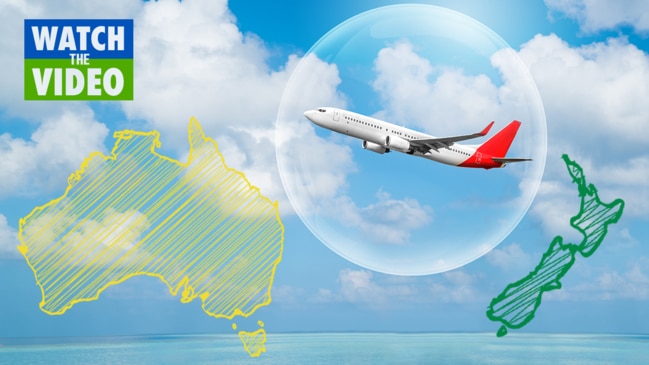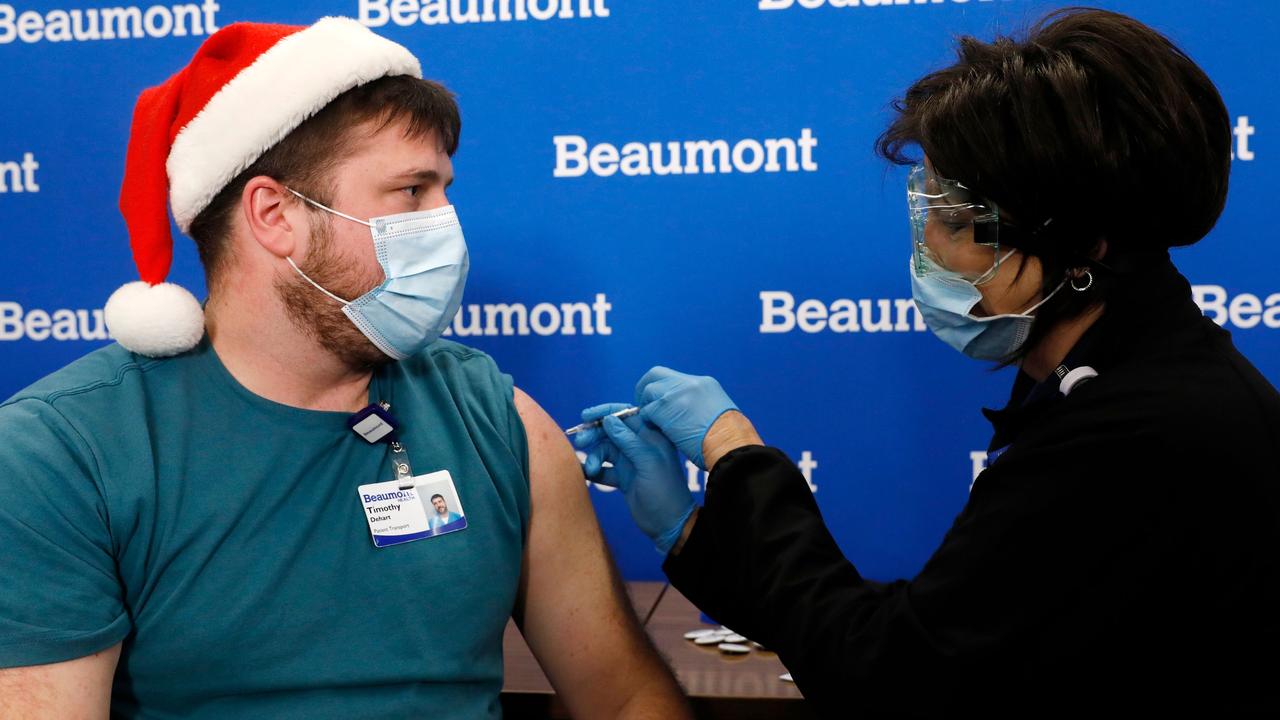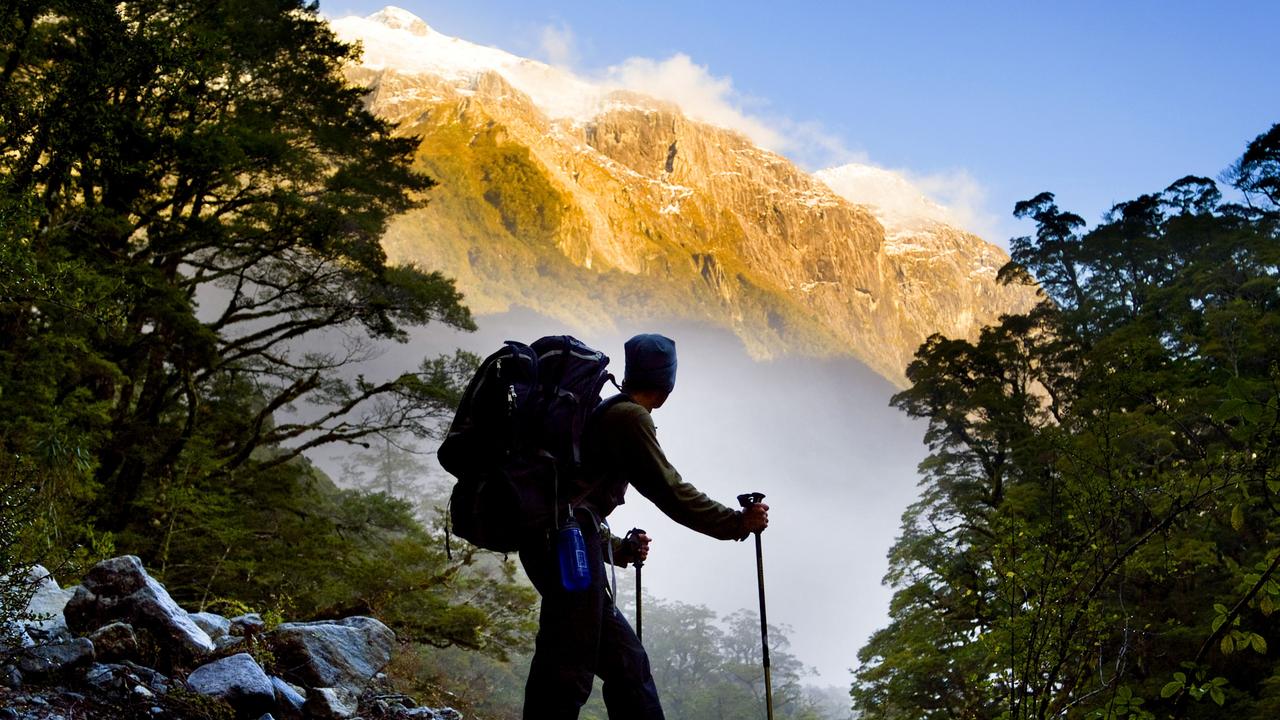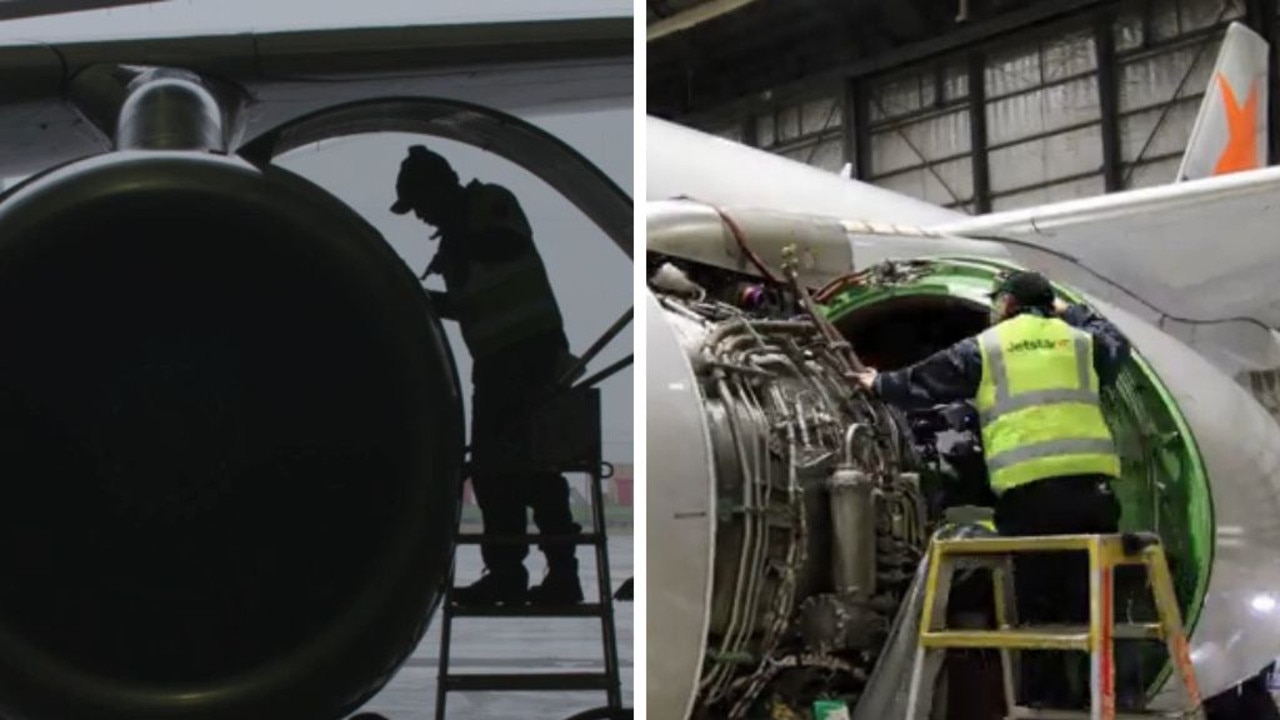Young Australians probably won’t be able to travel overseas next year as vaccination rollout is revealed
Overseas travel is nearly back - but one group of Aussies will remain grounded next year as details of the country’s vaccination rollout are revealed.

Young Australians will likely miss out on international travel for another year as reports emerge that people will be separated into 12 age groups for the rollout of the coronavirus vaccine.
The United Kingdom began rolling out shots of the Pfizer/BioNTech vaccine last week, followed by the United States this week, providing hope the COVID-19 pandemic will soon come to an end.
Australia has also signed a deal to buy 10 million doses of the Pfizer vaccine, enough to cover five million people for the two required doses, but its rollout won’t begin until March 2021.
Even once this does begin, the government will prioritise health workers and aged care residents, as has been done in both the UK and US.
The Herald Sun revealed today that young people may have to wait the end of next year for their shot as the vaccine will be administered first to those aged over 70, followed by those aged 65 to 70, and the rest of the population will be divided into five-year age groups.
Children under the age of 18 are unlikely to be vaccinated at all during 2021 because pharmaceutical companies have not sought approval for the vaccine to be used in younger people.
The strategy of the rollout means young people may have to wait for another year if they want to travel overseas.
Airlines like Qantas have already suggested that proof of a COVID-19 vaccine will be a non-negotiable condition of international air travel as soon as it’s available.
Acting chief medical officer Paul Kelly was asked today whether the vaccine rollout would be done in five-year increments but said authorities hadn’t made that decision yet.
“It’s too early to say that specifically,” he said, but he noted this was how the UK was managing their rollout based on medical advice.
RELATED: Qantas hopes to fly internationally by mid-2021

Prof Kelly did confirm the first priority for vaccinations would be people most likely to get a severe form of the disease such as the elderly and those with chronic diseases.
“The second priority will be people that are putting themselves in the frontline and caring for people that may have disease,” he said.
This includes healthcare workers and aged care workers.
The third priority would be essential workers required to keep society going.
“That’s where that granularity will need to come out as to who is exactly the first in that queue,” he said.
“But I’d really like to reiterate today that our aim for 2021 is to have anyone in Australia who wants to get this vaccine vaccinated.
“And so, yes, there will be a queue.”
Prof Kelly was asked whether airline crew would be one of the first to get vaccinated and he said those involved with international travel in particular would be putting themselves in danger for the good of the country so “may well be up the top”.
“But as I said, we’ll be guided by the medical advice and those specifics will come later,” he said. He said more details of the rollout will be revealed in January.
IMPACT ON TRAVEL
Prof Kelly was asked how vaccinations may impact travel and whether there would be a tiered system.
He acknowledged vaccines was a new factor in Australia’s risk mitigation for overseas travel but said “it’s too early for me to say one way or the other how it’s going to affect it”.
“We’re certainly looking at how that might affect both incoming travel and people going overseas,” he said.
He said more work and medical advice was needed to work through the issues.
Prof Kelly also flagged another potential issue, saying Australians who got vaccinated against COVID-19 overseas would still have to undertake two weeks of quarantine because some vaccines may not stop them from passing the disease on to others.
Qantas CEO Alan Joyce told A Current Affair last month that the airline would require vaccinations for all travellers.
“For international travellers, we will ask people to have a vaccination before they get on the aircraft,’’ Mr Joyce said.
“Certainly, for international visitors coming out and people leaving the country we think that’s a necessity.”
It’s unclear whether this will also apply for places like New Zealand which has already set a likely start date for a travel bubble with Australians for early next year.
RELATED: US set to approve Moderna vaccine

COMPULSORY REGISTRATION OF VACCINATIONS
Health Minister Greg Hunt also confirmed this month that a provisional guideline set through the Australian Technical Advisory Group on Immunisation (ATAGI) put health workers and elderly Australias first in line for the coronavirus vaccine.
He said the next layer of the rollout was being considered by ATAGI but it would “unlikely be different in any significant way from the UK”.
He also confirmed that “it’s unlikely that children should be at the front of the process” as there had not been many global tests on children, raising safety concerns.
“We’ve said previously that it’s going to be voluntary and that at this stage, there are no plans to impose or to draw upon other programs, such as the ‘no jab, no pay’,” he said.
But the Morrison Government plans to make it compulsory to report vaccinations to the Australian Immunisation Register so authorities can keep track of how much of the population has been vaccinated.
This won’t just apply for the COVID-19 vaccine but for all vaccinations. Currently it is not compulsory to notify the register when people receive a vaccine, although some providers do.
However, Mr Hunt says this vaccination information will not be provided to companies like Qantas from the government, although individuals will have control of their own records.
“It’s a matter of individual control of individual records,” he told reporters earlier this month.
Prime Minister Scott Morrison noted there would also be a need to work globally to ensure there was a common set of recognitions around vaccinations.
“That’s going to be very important because obviously in countries around the world, there’s going to be different vaccines in Indonesia, in Malaysia, in the United States, potentially across Europe, China and so on,” he said.
“And so it’s important that there is a common understanding globally about vaccines, their efficacy and what will satisfy standards.”




